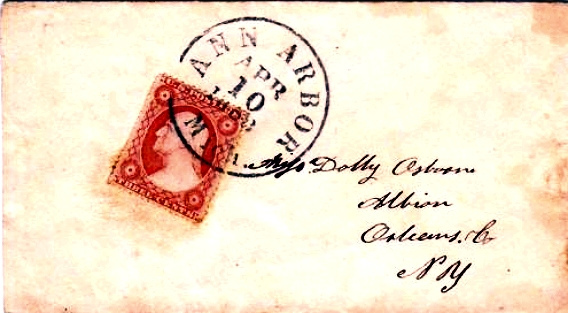
On Thursday morning, a unanimous Illinois Supreme Court affirmed in Huber v. American Accounting Association. As briefed, Huber presented the question of whether a postmark was sufficient proof of timely mailing to trigger Illinois’ limited mailbox rule. But in the end, in an opinion by Justice Mary Jane Theis, the Court held that the plaintiff didn’t have the prerequisite to present that question: a postmark. Our detailed summary of the facts and underlying court decisions in Huber is here Our report on the oral argument is here.
The clerk received the plaintiff’s Notice of Appeal on April 9, thirty-four days after entry of judgment. The envelope in which the Notice of Appeal arrived appeared to show a postmark date of April 3 – twenty-seven days after entry of judgment. According to Rule 373, if received after the due date, the time of mailing is deemed to be the time of filing as long as proof of mailing is made pursuant to Rule 12(b)(3). Rule 12(b)(3) provides that an attorney certificate or affidavit of a non-attorney is required to prove mailing. The Appellate Court held that because the plaintiff failed to provide proof of mailing pursuant to Rule 12(b)(3), the mailbox rule didn’t apply and the plaintiff’s Notice of Appeal was untimely.
The Supreme Court affirmed. The Court noted that as originally adopted in 1967, Rule 373 has allowed proof of mailing by a postal service postmark. As a result of illegible postmarks and delays in affixing postmarks, the reference to postmarks was deleted from the Rule in 1981, substituting the requirement of an attorney certificate or non-attorney affidavit.
The problem, the Court held, was plaintiff’s mailing envelope didn’t contain a postmark. The Court defined a postmark as an official Postal Service imprint reflecting the location and date the Postal Service assumed control of the piece, and cancelling the affixed postage. What the plaintiff called a postmark was in fact a postage label from an Automated Postal Center (APC). An APC is a self-service kiosk, generally located in post office lobbies, which enables customers to mail letter and packages, buy postage, look up zip codes and access assorted other services. But the APC label is not a “postmark,” the Court found – on its face it shows a “date of sale,” not the date on which the piece was turned over to the postal service and the postage cancelled. Thus, it doesn’t matter if Rules 373 and 12(b)(3) might permit proof of mailing by a legible postmark, since plaintiff didn’t have one – the APC label indicated that the plaintiff might have mailed his envelope on April 3, but nothing more. Since plaintiff neither provided the certificate or affidavit required by Rule 12(b)(3) or even a valid postmark, the mailbox rule didn’t apply, and his notice of appeal was untimely. Therefore, the judgment was affirmed.
Image courtesy of Flickr by Wystan (no changes).
